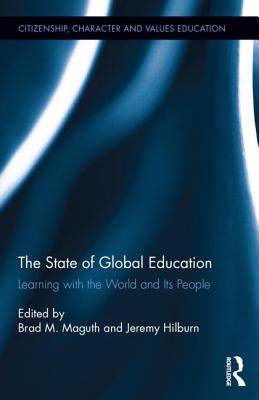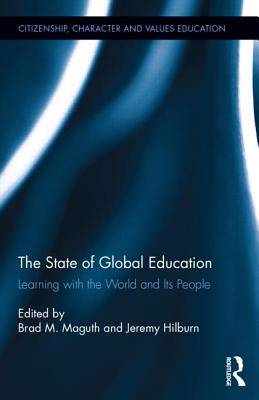
- Retrait gratuit dans votre magasin Club
- 7.000.000 titres dans notre catalogue
- Payer en toute sécurité
- Toujours un magasin près de chez vous
- Retrait gratuit dans votre magasin Club
- 7.000.0000 titres dans notre catalogue
- Payer en toute sécurité
- Toujours un magasin près de chez vous
The State of Global Education
Learning with the World and its People
Description
A battle is being waged in classrooms and capitals around the world over the goals and objectives of the future of global education. While there is growing research in the area of global education, much remains to be uncovered, challenged, and learned through sound empirical research and conceptual explorations. What type of global citizens will schools promote? What types of policies, programs and instructional practices best promote effective global citizenship? Will global education curricula advance an unwavering loyalty to neoliberal ideologies and interests over the strengthening of human rights and the environmental health of our planet? This volume presents a series of research studies and innovative instructional practices centered on advancing global learning opportunities and literacies.
The authors in this volume initiate a much needed conversation on ways students in multiple contexts can and should learn with the world and its people. Part I addresses global education in theory, with a particular focus on development, intercultural competence, and global citizenship. Part II addresses educational programs and practices that foster global learning and action to help build a better future for all citizens of our planet - including experiential education, university initiatives, and conceptual approaches to teaching and learning. This scholarship spans four continents in a multitude of educational contexts - primary, secondary, and tertiary - each with a focus on a different dimension of the possibilities and pitfalls in teaching about and with the world and its people.
Spécifications
Parties prenantes
- Editeur:
Contenu
- Nombre de pages :
- 188
- Langue:
- Anglais
- Collection :
Caractéristiques
- EAN:
- 9780415721677
- Date de parution :
- 28-04-15
- Format:
- Livre relié
- Format numérique:
- Genaaid
- Dimensions :
- 157 mm x 229 mm
- Poids :
- 498 g

Les avis
Nous publions uniquement les avis qui respectent les conditions requises. Consultez nos conditions pour les avis.





